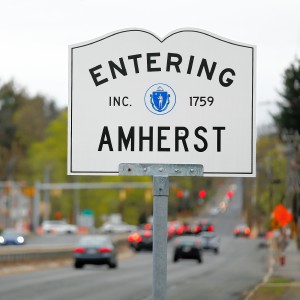Top Senate Dem opposes Supreme Court pick, vows filibuster
| Published: 03-23-2017 1:10 PM |
WASHINGTON — The top Senate Democrat said Thursday he will oppose President Donald Trump’s Supreme Court nominee and lead a filibuster of the choice, setting up a politically charged showdown with Republicans with far-reaching implications for future judicial nominees.
New York Sen. Chuck Schumer criticized Judge Neil Gorsuch, saying he “almost instinctively favors the powerful over the weak” and would not serve as a check on Trump or be a mainstream justice.
“I have concluded that I cannot support Neil Gorsuch’s nomination,” Schumer said on the Senate floor. “My vote will be no and I urge my colleagues to do the same.”
Shortly before Schumer’s announcement, Pennsylvania Sen. Bob Casey, who faces re-election next year in a state Trump won, also announced his opposition. Casey said he had “serious concerns about Judge Gorsuch’s rigid and restrictive judicial philosophy, manifest in a number of opinions he has written on the 10th Circuit.”
Democrats are still furious that Republicans blocked former President Barack Obama’s nominee, Merrick Garland, and the seat on the high court has remained vacant for 13 months and counting. The GOP insisted that the next president make the nomination.
Liberals have pressured Democrats to resist all things Trump, including his nominees, although Gorsuch emerged unscathed from two days of testifying.
Senate Majority Leader Mitch McConnell, R-Ky., now must decide whether to take the same step his Democratic predecessor did and change Senate rules to confirm Gorsuch and other Supreme Court nominees with a simple majority rather than the 60 votes now required to move forward.
“Gorsuch will be confirmed; I just can’t tell you exactly how that will happen, yet,” McConnell said in an interview with The Associated Press earlier this week.
Article continues after...
Yesterday's Most Read Articles
 Amherst Town Council calls emergency meeting to consider rescinding funds for Jones Library project
Amherst Town Council calls emergency meeting to consider rescinding funds for Jones Library project
 New group, ReConnect Western Mass, takes aim at smartphones in schools, social media use among youth
New group, ReConnect Western Mass, takes aim at smartphones in schools, social media use among youth
 Northampton Police search for suspect in water pellet shooting
Northampton Police search for suspect in water pellet shooting
 ‘Hands off our students now’: 100 at pro-Palestinian rally demand improved protections for internationals, divestment from Israel
‘Hands off our students now’: 100 at pro-Palestinian rally demand improved protections for internationals, divestment from Israel
 Northampton School Committee backs ‘strong’ budget, while acknowledging they likely won’t get it
Northampton School Committee backs ‘strong’ budget, while acknowledging they likely won’t get it
 Belchertown Select Board lowers Proposition 2½ override request to $2.9M
Belchertown Select Board lowers Proposition 2½ override request to $2.9M
The Judiciary panel is expected to vote in the next two weeks to recommend Gorsuch favorably to the full Senate.
Democrats Jeff Merkley of Oregon, Kirsten Gillibrand of New York, Sherrod Brown of Ohio, Tammy Baldwin of Wisconsin, Elizabeth Warren of Massachusetts and Ed Markey of Massachusetts have declared their opposition.
No Democrat has yet pledged to support the judge, but Sen. Joe Manchin of West Virginia said Wednesday he is open to voting for him.
Hearings for a Supreme Court nominee usually dominate Congress, but that’s not been the case over the four days of hearings. The Republican push to dismantle Obama’s Affordable Care Act and the controversy surrounding the investigation into contact between Trump associates and Russia overshadowed the hearings.
On Thursday, lawyers, advocacy groups and former colleagues got their say on Gorsuch during the third and likely final hearing examining his qualifications.
The American Bar Association’s Nancy Scott Degan explained how a committee evaluating Gorsuch came up with its highest rating of well qualified. She said the committee contacted almost 5,000 people nationwide who might have knowledge of his qualifications. They examined his qualifications based on integrity, professional competence and temperament.
“The scope of our investigation was deep and broad,” Degan said. “We do not give the well-qualified rating lightly.”
Sen. Dianne Feinstein, D-Calif., also noted that Garland received the ABA’s well-qualified rating, but didn’t get a hearing. Republican Sen. Orrin Hatch of Utah said he agreed that Garland is a wonderful person and well qualified.
The panel heard from several supporters and critics of Gorsuch.
Retired U.S. Court of Appeals Judge Deanell Reece Tacha served with Gorsuch and said he brings to the bench a powerful intellect and does not use his role as judge for anything other than deciding the case before him.
Some witnesses who were critical of Gorsuch worried that he would not be a strong check on executive overreach. Elisa Massimino, president and CEO of Human Rights First, described him as someone “who wouldn’t stand up against a presidential power grab,” stemming from his service in the Justice Department during the Bush administration.
]]>






 Community printing hub takes shape in Easthampton
Community printing hub takes shape in Easthampton Amherst Town Council approves University Drive overlay district
Amherst Town Council approves University Drive overlay district
